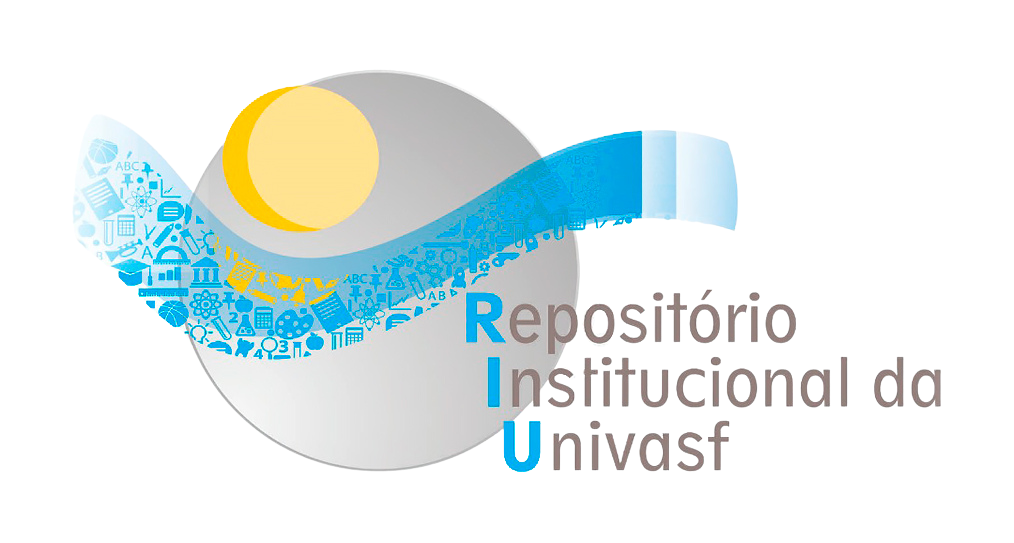Use este identificador para citar ou linkar para este item:
https://repositorio.univasf.edu.br/jspui/handle/123456789/1169| Título: | Uso da metodologia osce invertido como instrumento de ensino e aprendizagem no curso de medicina da univasf: um relato de experiência |
| Título(s) alternativo(s): | Use of the inverted osce methodology as a teaching and learning instrument in the univasf medicine course: an experience report |
| Autor(es): | Araújo, Franklin Jr Barreto, Raphaela https://orcid.org/0000-0001-7195-9858 http://lattes.cnpq.br/4617213714835536 https://orcid.org/0009-0009-3075-8414 http://lattes.cnpq.br/4910668880508663 |
| Palavras-chave: | metodologias ativas active methodologies educação médica ansiedade avaliação OSCE medical education anxiety assessment |
| Data do documento: | 11-Jan-2024 |
| Editor: | Universidade Federal do Vale do São Francisco |
| Citação: | AMARAL, E.; DOMINGUES, R.C.L; BICUDO-ZEFERINO, A.M. Avaliando competência clínica: o Método de Avaliação Estruturada Observacional. Rev. Bras. de Educação Médica, 2007; 31(3):287- 290. BRESSA, R. C.; MURGO, C.S.; SENA, B.C.S. Associações entre a autoeficácia docente e a utilização do Objective Structured Clinical Examination na educação médica. Rev. Bras. de Educação Médica, 45 (1): e001, 2021. COSTA, D.S. Sintomas de Depressão, Ansiedade e Estresse em Estudantes de Medicina e Estratégias Institucionais de Enfrentamento. Rev. Bras. de Educação Médica, 2020. GONTIJO, E.D. et al. Manual de avaliação da aprendizagem no curso de graduação em Medicina, Rev. Docência do Ensino Superior, Belo Horizonte, v. 5, n. 1, p. 305–312, 2015. Disponível em: https://periodicos.ufmg.br/index.php/rdes/article/. Acesso em: 23 ago. 2023. GONZAGA, A.A.D. et al. “OSCE” como estratégia de ensino-aprendizagem em semiologia médica: Percepção do estudante. Revista Bras. de Educação em Saúde, v. 10, n.2, p. 121-127, jul-set, 2020. GORDON, J.; HAZLETT, C.; TEN, C.O.; MANN, K.; KILMINSTER, S.; PRINCE, K. et al. Strategic planning in medical education: enhancing the learning environment for students in clinical settings. Med Educ. 2000; 34(10): 1-50. GUIMARÃES, K.B.S. Estresse e o estudante de medicina. In: Guimarães KBS. Saúde mental do médico e do estudante de medicina. São Paulo: casa do psicólogo; 2007. HARDEN, R.M; STEVENSON, M.; DOWNIE, W.W. Assessment of clinical structured examination. BMJ, v. 1, 1975, p. 447-451. JUG, R.; JIANG, X.S.; BEAN, S.M. Giving and Receiving Effective Feedback. Arch Pathol Lab Med—Vol 143, February 2019. LEE, G.B.; CHIU, A.M. Assessment and feedback methods in competency-based medical education. Ann Allergy Asthma Immunol. 2022 Mar; 128(3):256-262. doi: 10.1016/j.anai.2021.12.010. Epub 2021 Dec 17. PMID: 34929390. SACRAMENTO, B.O. et al. Sintomas de ansiedade e depressão entre estudantes de medicina: estudo de prevalência e fatores associados. Rev. Bras. de Educação Médica; 45 (1): e021, 2021. SOUZA, R.; Atributos fundamentais dos procedimentos de avaliação. Universidade Federal de Roraima, 2011. VASCONCELOS, M.L.M.C. A formação do professor do ensino superior. Niterói: Intertexto; São Paulo: Xamã, 2009. VASCONCELOS, T. et al. Prevalência de Sintomas de Ansiedade e Depressão em Estudantes de Medicina. Rev. Bras. de Educação Médica; 39 (1): 135 – 142; 2015. ZEFERINO, A.M.B.; DOMINGUES, R.C.L.; AMARAL, E. Feedback como Estratégia de Aprendizado no Ensino Médico. Rev. Bras. de Educação Médica, 2007. |
| Abstract: | The Medicine course at the Federal University of Vale do São Francisco (UNIVASF), Paulo Afonso campus, adopts active teaching and learning methodologies in its pedagogical project. For the evaluation of the competencies, skills and attitudes to be acquired by students throughout his academic training uses the OSCE (Objective Structured Clinical Examination) methodology. The OSCE, made up of stations set up in simulation laboratories, is a structured assessment instrument, like a checklist of tasks for students' medical skills and ability to “know how to demonstrate”. Based on experiences in the Skills and Attitudes axis it was found that students, especially after the Covid-19 pandemic, when undergoing the assessment process through the OSCE methodology, presented a significant level of stress and anxiety, compromising their mental health. The objective of this study was to report an experience with the OSCE, in the inverted format, as an intervention proposal with the aim of positively modifying the teaching and learning environment. The method used to validate the methodology was feedback, in person and online, carried out at the end of the activity, through which the teacher highlighted the positive points, presented the aspects to be improved and conveyed words of encouragement. The students, using Google Forms, recorded their perception about the activity, giving their opinion on the teaching performance, recognizing the viability of the adapted method and its positive impact on academic performance and students' psycho-emotional health. |
| URI: | https://repositorio.univasf.edu.br/jspui/handle/123456789/1169 |
| Aparece nas coleções: | SEAD - Esp. em Metodologias Ativas de Ensino Aprendizagem - TCC Especialização |
Arquivos associados a este item:
| Arquivo | Descrição | Tamanho | Formato | |
|---|---|---|---|---|
| TCC_FRANKLIN_VERSAO_BIBLIOTECA_assinado_assinado_assinado.pdf | Uso da metodologia osce invertido como instrumento de ensino e aprendizagem no curso de medicina da univasf: um relato de experiência | 691.23 kB | Adobe PDF | Visualizar/Abrir |
| TERMO DE AUTORIZAÇÃO DE DISPONIBILIDADE DE TCC - UNIVASF modelo.assinado.pdf | Termo de autorização | 361 kB | Adobe PDF | Visualizar/Abrir |
Este item está licenciada sob uma Licença Creative Commons

